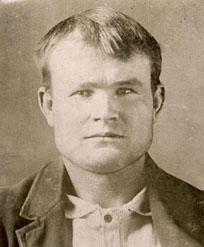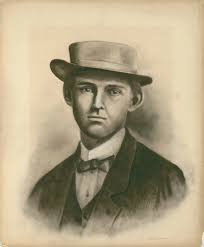The Sundance Kid

Harry Alonzo Longabaugh, famously known as The Sundance Kid, stood silently at the edge of a steep ridge overlooking the sprawling Wyoming landscape. The late afternoon sun painted the sky in shades of gold and crimson, reflecting softly off the barrel of the rifle that rested comfortably in his hands. It was 1897, and at thirty, Sundance had already earned his reputation as one of the West's deadliest marksmen and most elusive outlaws.
A short distance away, Butch Cassidy—the charismatic leader of the Wild Bunch—was animatedly discussing their next big score with their comrades. Sundance, however, preferred solitude, often reflecting quietly before a robbery. His cautious nature balanced Butch’s charismatic bravado perfectly, making them an unmatched duo.
"What're you thinkin' about, Kid?" Butch asked, approaching his friend with a knowing smile. He understood Sundance's need for introspection.
Sundance glanced sideways, offering a faint smirk. "Thinkin’ about tomorrow," he answered quietly. "Just making sure we’ve got all angles covered."
Butch chuckled warmly. "You're always covering angles. That's why I trust you with my life."
Sundance nodded thoughtfully. "Good. Don't plan on lettin’ you down."
Their bond had formed years earlier in the rough towns and ranches of Wyoming, forged through mutual respect and trust. Sundance had grown up in Pennsylvania before drifting westward, drawn by promises of adventure and freedom. Along the way, his skill with firearms became legendary. It was this skill, combined with his loyalty and quiet strength, that had drawn Butch Cassidy’s attention and respect.
That evening, around a crackling campfire, Butch outlined their plan: an audacious robbery of a bank in Telluride, Colorado. The gang listened intently, each man knowing the risk was great but trusting their leaders implicitly. Sundance remained watchful, his piercing gaze scanning faces, always alert for doubts or weaknesses.
The next morning found them riding swiftly across rugged terrain toward Telluride, horses kicking up clouds of dust in their wake. Sundance rode beside Butch, quiet and focused, his mind carefully assessing every detail of their approach.
As they reached the town, they swiftly put their plan into motion. Sundance positioned himself strategically outside the bank, rifle at the ready, while Butch and the others moved inside to secure the vault.
"Nobody move!" Butch commanded sharply, swiftly gaining control. Sundance waited calmly outside, senses heightened, ready to act at the slightest sign of trouble. Suddenly, movement caught his attention—a townsman reaching cautiously toward a hidden gun.
"Don't," Sundance said calmly, his voice firm and steady as he aimed precisely, never wavering. The man froze instantly, understanding the deadly seriousness behind those simple words.
The robbery proceeded smoothly, the gang escaping swiftly with their loot, fleeing toward the safety of their mountain hideaway. Yet Sundance knew their successes only increased the pressure from relentless lawmen and bounty hunters.
Weeks turned into months, and the noose of pursuit tightened. Eventually, Sundance suggested the idea that had long haunted his thoughts.
"South America," he said quietly to Butch one evening beneath a sky thick with stars. "We could start fresh."
Butch paused, considering. "Argentina? Bolivia? You think we could truly leave all this behind?"
"Worth trying," Sundance replied earnestly. "We can't outrun 'em forever here."
In 1901, they set sail for Argentina, aiming to put their outlaw past behind them. In Patagonia, Sundance finally experienced peace, enjoying the simplicity of ranch life and the company of Etta Place, the mysterious woman who had joined them on their journey south.
However, the pull of their past proved irresistible. Soon enough, the pair resumed their outlaw ways, robbing banks and payroll shipments in Bolivia, slipping back into a familiar rhythm of adrenaline and danger.
Yet their luck soon waned. In November 1908, after robbing a Bolivian mining payroll, they were relentlessly pursued to the village of San Vicente. Trapped inside a modest adobe house, Sundance knew escape was unlikely. Soldiers surrounded them, their numbers overwhelming.
Sundance glanced over at Butch, their friendship conveyed through silent understanding. "Looks like we made our final stand," Sundance remarked, resigned but calm.
"If this is it, we face it head-on," Butch replied, loading his revolver with steady hands.
Gunfire erupted, tearing through walls and splintering the heavy wooden door. Sundance returned fire, his legendary accuracy proving true even in this desperate situation. Yet he knew the end was near.
As the soldiers closed in, Sundance looked once more toward Butch. Both men nodded silently, their decision made. Two final shots echoed within the small house, ending their lives on their own terms, refusing surrender.
In the aftermath, as soldiers discovered their bodies, the legend of The Sundance Kid grew. Though an outlaw, his quiet strength, exceptional skill, and unwavering loyalty created a legacy that endured. His story became symbolic of the Wild West itself—a tale of freedom, rebellion, and a man who lived life on his own terms, his quiet courage immortalized forever in history's relentless march forward.









